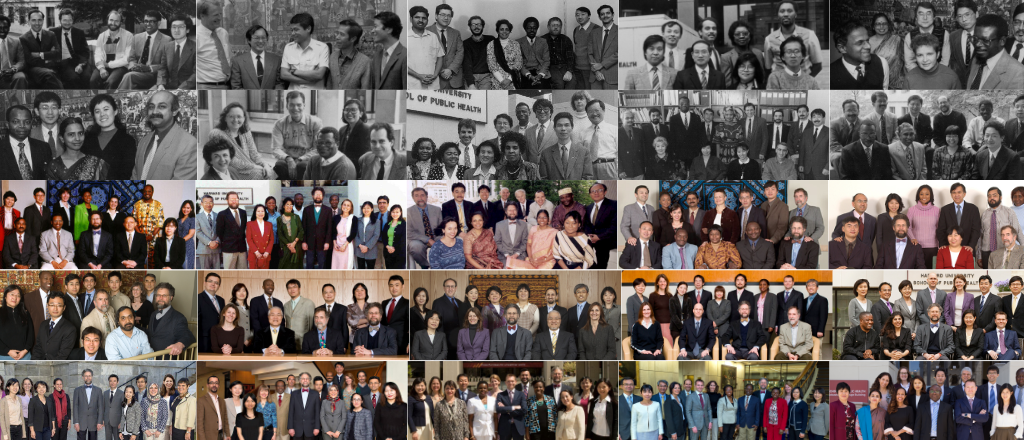Takemi Program in International Health
The Takemi Program in International Health seeks to improve health and health systems around the world by welcoming mid-career health professionals and scholars to the Harvard T. H. Chan School of Public Health to conduct path breaking research and develop their leadership skills.
665 Huntington Avenue, Bldg. 1, Room 1210
Boston, MA 021151, USA

Our 40-year history
The Takemi Program in International Health at the Harvard T. H. Chan School of Public Health was established in 1983. The Takemi Program grew from the shared interests of Dr. Taro Takemi and Dean Howard Hiatt. Each had long been concerned about promoting health and preventing disease, both in developing countries burdened by poverty and in industrialized nations now feeling more sharply the constrains of limited resources in meeting health needs.
In 1975, Dr. Takemi, then President of the World Medical Association (WMA), set the theme of the WMA Plenary Session the development and equitable distribution of health care. Particular Stress was placed on the need to bring together experts from medicine, public health, economics, law politics and other fields to find effective solutions to the complex and important problems discussed.
During the same period, under the leadership of Dr. Hiatt, was also emphasizing the development of interdisciplinary approaches to the study of health problems. In 1981, Dr. Takemi invited Dean Hiatt to Tokyo to address another WMA meeting on ‘Development and Allocation of Medical Care Resources.’ While there, Dean Hiatt and Dr. Takemi discussed the problems of international health. Out of their discussions grew the idea of the Takemi Program.
The Program is guided by seven principles:
Takemi Fellows are encouraged to do serious research studies that are publishable in the peer-reviewed international literature and that contribute to knowledge.
The research should deal with important public health problems for societies and seek to have an impact on how policies are designed and implemented.
The program continues the tradition of Dr. Taro Takemi, who included advisors who were sociologists, economists, psychologists, as well as epidemiologists and physicians. This recognizes that the problems of health in society cannot be solved by a single discipline but require multiple ways of thinking and analysis.
The program embodies a principle of respect for others and does not tolerate discrimination.
At the same time, the program gives Takemi Fellows a wide degree of individual freedom in deciding on their studies, courses, and careers.
The program seeks to foster a sense of community among Takemi Fellows from diverse backgrounds and disciplines, encouraging Fellows to learn from each other and work together, and to work with communities for impact.
Through these principles, the program seeks to build the capacity of individuals as researchers and as leaders, to give them the freedom to think creatively and boldly about critical public health problems in their societies, while understanding that changes have to occur through teams and with communities.
Reich, Michael R. The concept and practice of international health in the Takemi Program. JMAJ 48(5):1-10, 2005.